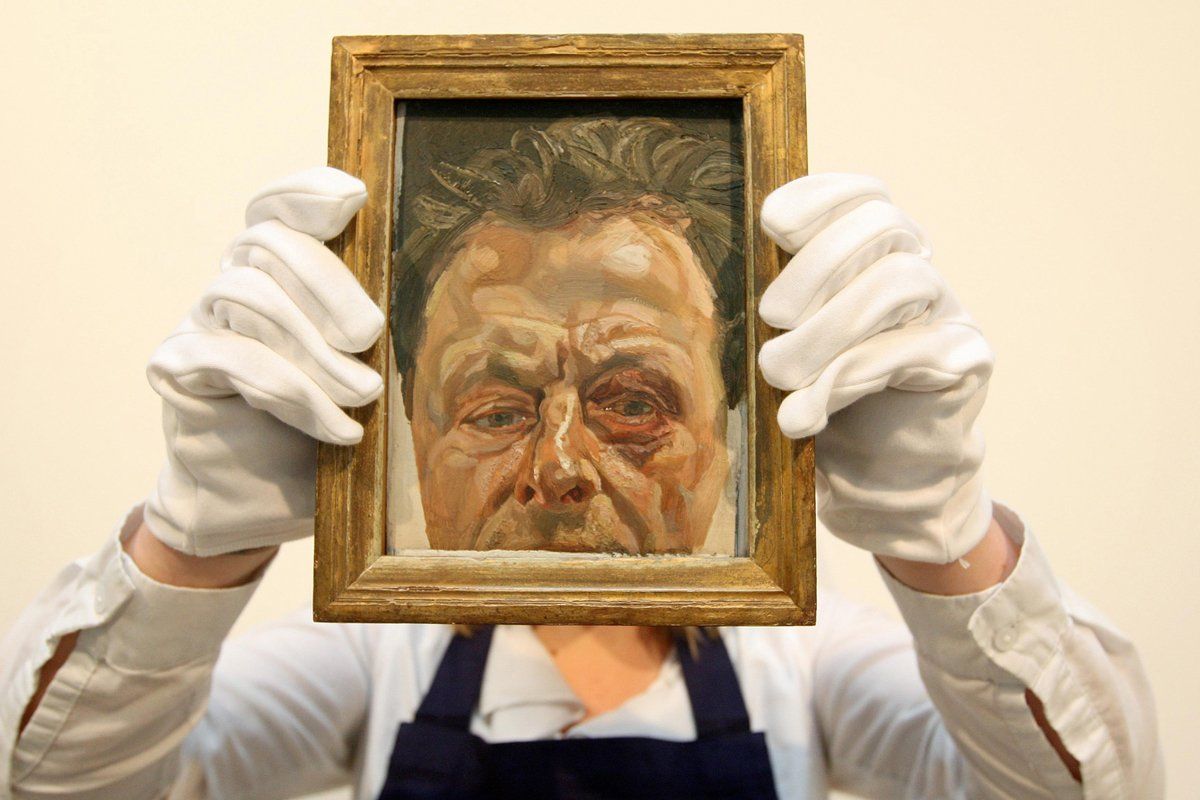
On July 20 in London, the great painter Lucian Freud passed away. He was 88 and had long since established himself as the last in a line of English masters stretching back to Thomas Gainsborough, John Constable, and J.M.W. Turner. He'd also established himself as a classic bohemian who spent hard, drank hard, screwed hard, and painted even harder. He found debt stimulating, he once said; married twice, he had untold children by any number of lovers. You could always feel the chaos in his life in the chaos of his canvases, and you were supposed to. A Freud portrait could make a sitter seem as skewed as the artist himself on a bender—even when that sitter was Elizabeth II.
Freud had a rocky start—it took figuration's return to fashion in the 1980s to make him a global star—but, for all his acting out, he ended up counting as the grand old man of British art.
He was Sigmund Freud's grandson, born in Berlin into an elite clan that had the means and foresight to flee Hitler, taking shelter in England in 1933, when the painter was 11. Like so many people transplanted at that in-between age, Freud could neither ignore the new culture he was thrown into nor merge with it seamlessly. Freud's Britishness would always be a matter of conflict and negoti- ation, and that's what we see played out in his work.
British art before Freud had managed to sit out some of the most radical movements in Europe and America. While the leading minds in Paris, Moscow, Berlin, and New York were following up on the cubism of Picasso, the abstraction of Malevich, or the conceptualism of Duchamp, many artists in London were still thrashing out the legacy of their 18th- and 19th-century forerunners. But instead of ignoring the conservatism around him, Freud took it on.
Freud was famous for demanding hundreds of hours with his models; he needed those hours because his art was all about taking the procedures of his British precursors and pumping them up till they burst. Freud doesn't describe, in measured tones, what a particular person is actually like. Instead, he makes pictures that scream flesh, duration, observation, and paint to trump the tidy Britishness of any other master.
Uncommon Knowledge
Newsweek is committed to challenging conventional wisdom and finding connections in the search for common ground.
Newsweek is committed to challenging conventional wisdom and finding connections in the search for common ground.
About the writer
To read how Newsweek uses AI as a newsroom tool, Click here.





